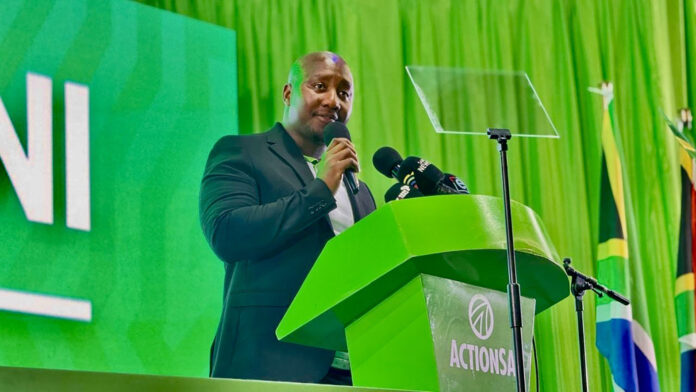South Africa’s municipal governance is in crisis. Finances are dire, with most municipalities heavily indebted and unable to generate sufficient revenue. Infrastructure crumbles, service delivery falters, and corruption festers.
The auditor-general reported that only 41 of 253 municipalities earned clean audits in 2023/2024. Out of the eight metros, only Cape Town achieved a clean audit.
Turning these entities around requires time, seasoned leadership, and integrity. With the 2026 local government elections looming, parties are unveiling mayoral candidates for the metros, signalling these urban centres as the electoral battleground for 2026.
Why do metros matter?
The eight metros—Johannesburg (5.6-million residents), Cape Town (4.7-million), eThekwini (3.8-million), Ekurhuleni (3.8-million), Tshwane (3.3-million), Nelson Mandela Bay (1.2-million), Buffalo City (1.1-million), and Mangaung (800 000)—house about 40% of South Africa’s population, or 24-million people.
They drive 60% of the national gross domestic product and command massive budgets. Joburg tops the list with its R83-billion, followed by Cape Town’s R77-billion, eThekwini R63.3-billion, Ekurhuleni R63-billion, Tshwane R51-billion, Nelson Mandela Bay R20-billion, Buffalo City R11.4-billion, and Mangaung R11-billion.
Winning a metro provides the perfect platform to showcase a party’s governance prowess. This can grant a party control over vast resources—for transformation or plunder.
Yet challenges abound: 1 689 informal settlements in 2023, housing backlogs, billing crises, water and power shortages, potholes, dysfunctional traffic signals, illegal trading, crime, and grime. Municipal IQ recorded over 155 metro protests in 2023 alone.
Given the strategic nature of the metros, the magnitude of the challenges they are facing, and the aspirations of the residents, a question that needs answering is, what is the calibre of the mayors needed to turn these municipalities around?
However, before we answer this question, we must first understand the powers and functions of the mayor.
The mayor’s mandate
Beyond ceremonies, the executive mayor must, per Section 56(2) of the Municipal Structures Act, identify needs, prioritise them, recommend strategies, programmes, and services via the integrated development plan and budget, and ensure optimal delivery, including partnerships aligned with national and provincial plans.
Parties serious about residents cannot field novices. Ideal candidates need management and governance experience, education to navigate institutional complexities, ethics to resist corruption, and commitment to stay the course, because turning a municipality around cannot be a quick fix affair.
It takes time to instill a new culture and work ethic, ensure regularity and consistency of services, and embed change. That is the calibre of the leadership required to turn these metros around.
Candidate scrutiny
Do announced or rumoured candidates measure up?
The DA’s nomination of Helen Zille for Joburg has raised the bar. At 75, she brings proven credentials: a former mayor of Cape Town for five years and a premier of Western Cape for 10 years.
Remember, after she stabilised the City of Cape Town, Zille didn’t go to an old age home; she went to the premier’s office, where she could oversee and support the continuation of the work she started in the municipality.
This time age is her Achilles’ heel. Joburg’s deep-seated problems demand at least one full term, possibly two.
Zille may not complete even one, risking interrupted progress. Is she the DA’s electoral bait, with power handed post-victory to another? The DA must clarify its intentions.
ActionSA reportedly eyes Herman Mashaba for Joburg. The 66-year-old offers business success and 2.5 years as a prior mayor. But like Zille, time constrains him.
The truth is that Mashaba would not miss an opportunity to be his party’s presidential candidate.
A 2029 presidential bid would require resigning in 2028 for parliamentary eligibility, abandoning the mayoral post.
Like a cat faced with a fish and milk in front of it, Mashaba must choose what he wants: mayoral power in Joburg or a presidential run in 2029.
Or is it whom he loathes the most: Zille or the ANC? ActionSA must assure voters this isn’t a “catch and release” ploy.
Mashaba’s dual ambition also signals ActionSA’s lack of credible people to stand for public office. This is evident in them naming Xolani Khumalo for Ekurhuleni.
Media interviews reveal that Khumalo is a novice and unsuited for such a complex metro.
Here, popularity trumped merit. Khumalo is probably suitable for a head of canines at the metro police department, not for a mayor of a municipality of the magnitude of Ekurhuleni.
If Bongani Baloyi runs for Joburg, uMkhonto weSizwe has the potential to cause disruption.
At 38, the former Midvaal mayor (10 years) has the necessary credentials and age on his side. His insights from both the DA and ActionSA would make him a formidable opponent for the two parties.
But his party’s volatility may derail his candidacy. Voters can never be sure whether he will still be the party’s preferred mayor during and after elections.
As the ANC, EFF, and others prepare their announcements, citizens must be wary of political baits and underqualified novices. Metros deserve leaders equipped to deliver lasting change.
Brutus Malada is a political strategist and PhD candidate in political studies at the University of Johannesburg. He hosts The Brutally Honest Show on YouTube and Alex FM, and he features on eNCA’s Saturday Morning show.



